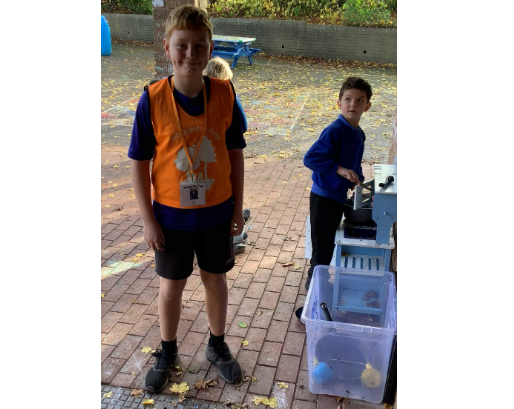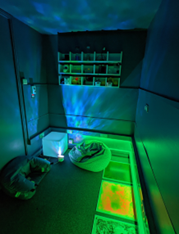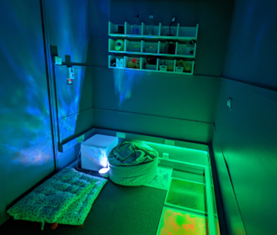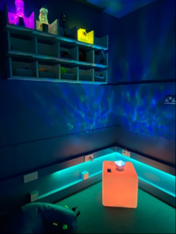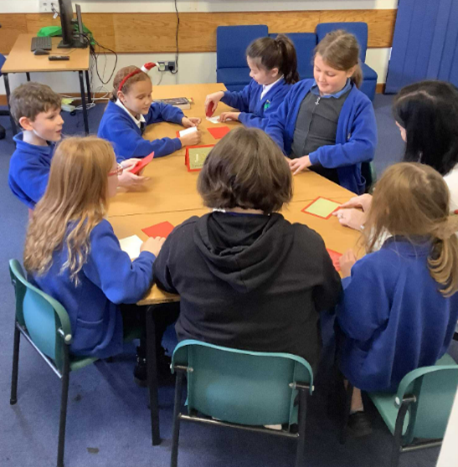What are the arrangements for consulting pupils and the parents/carers of pupils with SEND at Lawley Primary School and involving them in their own education, or the education of their child?
At Lawley Primary School, parents/carers are fully included in the education of their child. This includes:
- Termly parent/teacher meetings to review and discuss the School Support Maps.
- Parents/carers sign the School Support Map and take a copy home to ensure they know the targets their children are working on and support how they can help at home.
- Parents/carers of pupils with an Education, Health and Care Plan are also invited to attend an annual review meeting, at least once a year.
- Support and inclusion in assessments and on-going support provided by professionals from outside of school.
- Parental representation on the Governing Body.
- ELSA leaflets to support parents whose children are struggling with their Social and Emotional Mental Health.
- Regular Facebook updates and photos to share school information.
- Regular Facebook posts to share Local Offers to support parents.
- Open-door policy ensures that the class teacher and the SENDCo are available to discuss any worries and concerns.
- Pupils at Lawley are fully involved in their learning education. Support maps are discussed with pupils, and their views are recorded.
- SEN coffee morning where parents/carers were invited to come in and speak to the SENDCo and other members of staff who may be working alongside their child.
- A termly SEND newsletter.
- The SENDCo and pupil and family support officer are available during parents' evenings to come and talk to.
How do we assess and review pupils’ progress towards their outcomes?
We follow the graduated approach and the four-part cycle of assess, plan, do, review.
The class teacher works with the SENDCo to carry out a clear analysis of the pupil’s needs.
This draws on:
- the teacher’s assessment and experience of the pupil
- the pupil’s previous progress, attainment and behaviour
- other teachers’ assessments, where relevant
- the pupil’s development in comparison to their peers and national data
- the views and experiences of parents
- the pupil’s own views
- advice from external support services.
The effectiveness of support and intervention, and the progress of pupils is reviewed regularly by the SENDCo, class teacher and external professionals where required.
How do we evaluate the effectiveness of our SEND provision at Lawley Primary School?
The effectiveness of provision for pupils with SEN is evaluated by the class teacher, SENDCo and SLT by:
- reviewing pupils’ individual progress towards their goals each term
- reviewing the impact of interventions after an agreed number of weeks, which is captured on their school support map
- capturing pupil voice by talking with SEND pupils
- data analysis
- using School Support Maps and EHCP individual education plans to measure progress towards goals
- holding annual reviews for pupils with Education Health & Care Plans.
What are the arrangements made by the governing body for dealing with complaints from parents/carers of pupils in relation to the provision made at Lawley Primary School?
We advise parents/carers about how to make a complaint about SEND provision. The Headteacher will then discuss the complaint with the class teacher and SENDCo. If the matter is not fully resolved parents and carers will follow the school’s complaints policy, which can be found online.
The parents/carers of pupils with disabilities have the right to make disability discrimination claims to the first-tier SEN and/or disabilities tribunal if they believe that the school has discriminated against their child. They can make a claim about alleged discrimination regarding:
- Exclusions
- Provision of education and associated services
- Making reasonable adjustments, including the provision of auxiliary aids and services
How do we support pupils transferring between phases of education or in preparing for adulthood?
We plan carefully for transition between different stages of education (transition from Nurseries, between year groups and transition to Secondary school) to be a positive experience that helps pupils to feel safe and continue to progress. Parents/carers always have the opportunity to meet the new teacher and class staff.
We share information with other schools at transition points. Social stories are used to help children with transition, and these can be taken home, with specific photos, to aid families over the holidays.
Transition involves a range of activities including:
- all pupils taking part in a ‘moving up day’ with their peers to their new school
- where necessary, SEND pupils have additional visits to the school
- The SENDCo has a conversation with the SENDCo at the receiving school for all pupils on the SEND register if requested
- The SENDCo from the receiving school is encouraged to visit pupils with an EHCP or complex needs in school to meet them and the class teacher prior to transition.
We encourage these meetings to be face to face.
See what people think about us
Testimonial and feedback:
‘I have had the pleasure of being involved in supporting the hub provision this academic year. The high adult to child ratio of 1:2 allows the children to benefit from a greater degree of adaptive and responsive teaching, intensive interaction and social, emotional and cognitive support and stimulation. This particularly benefits the development of serve and return interaction and executive functioning skills which are important for academic learning. Throughout the year the staff have engaged well in a process called Video Enhanced Reflective Practice (VERP) where short clips of their interactions with children are filmed and then analysed and explored by me as the lead psychologist and the wider hub team. This takes a strength-based approach and further build staff efficacy. Crucial to this has been the leadership of SENDCO Jenny Olenik, under whose guidance the provision has thrived. Through the analysis it has been evident that staff skill sets have improved, and they feel more confident in their support of the children, which has in turn benefited the children positively. A target of this intervention is to promote the building of attuned communication and relational competencies. The hub staff have demonstrated this in abundance, reflecting constantly to improve their practice even further. The children are thriving in this enhanced provision and still access all parts of the school day with the wider school that they are developmentally able to engage with at this stage. This is kept under close review by the hub team for each child to allow as much immersion in wider school life as is possible, as determined by the child's key adults who know them best.'
Many thanks
Dan
Dr Daniel Cumber
Educational and Child Psychologist
Extract:
The school have always been very good with communication and willing to meet to discuss anything that may be needed. Since the EHCP was issued the annual review process has been smooth and all paperwork has been shared well in advance of the review. It is clear that interventions are well structured and delivered by staff that have relevant training to achieve positive outcomes. The school ensure that interventions and support continue whilst they are having a positive impact but then change things when they cease to elicit a positive response. I feel that my child is known and understood and I would confidently suggest Lawley Primary to another parent looking for a nurturing and responsive school. I feel that a lot of positive change has happened within the SEND department in recent times and this has much to do with the leadership of SEND. I would like to share my gratitude for the support my family have received from the SEND department at Lawley. Things haven’t always been smooth but this is true of everyone’s educational journey and what Lawley have done is listen, be open to feedback and seek to improve.
Parent of a child with SEND
I am truly grateful for the support that our family has received from Mrs Olenik, Mrs Robinson and all staff at Lawley Primary School. Every School needs a Mrs Olenik she is amazing!
I attended a parent support session at PODS charity, out of 10 families at the session I was the only parent receiving support from School for their child's suspected SEND needs!
Lawley Primary is a wonderful School that cares about their pupils. Thank you for giving me the opportunity to share my opinion.
Parent of a child with SEND
Where is the information on the Telford and Wrekin’s local offer published?
There is further information on our website of our school offer for SEND and this links to the Local Offer on Telford and Wrekin’s website http://www.telfordsend.org.uk/
If you have any questions or requests for policies or information relating to this report please contact either Carol McQuiggin or our SENDCo Jennifer Olenik- Pritchard on 01952 388410.
Changes planned for 2025 – 2026
To create a new ‘Inclusion and Wellbeing council’ at Lawley, focussing on promoting kindness, fairness, happiness and understanding among pupils. Council members will ensure pupils feel included and will support mental health, help us celebrate diversity and encourage positive relationships. Council members will help organise activities that bring pupils together and work on projects like ‘Zones of Regulation’ and Kindness campaigns.
Zones of Regulation is another area of change that we will be exploring next year, as we learn and encourage a common language throughout our school that will support the identification of our emotions and strategies to cope with them.
We shall continue to develop our additional SEND provision, which will move locations given the expansion of our school as we open a new nursery setting.
We will implement a whole-school Theraplay approach to enhance pupils’ personal development by equipping staff with practical, play-based strategies that support emotional wellbeing, attachment, and self-esteem, particularly for children with complex needs.














